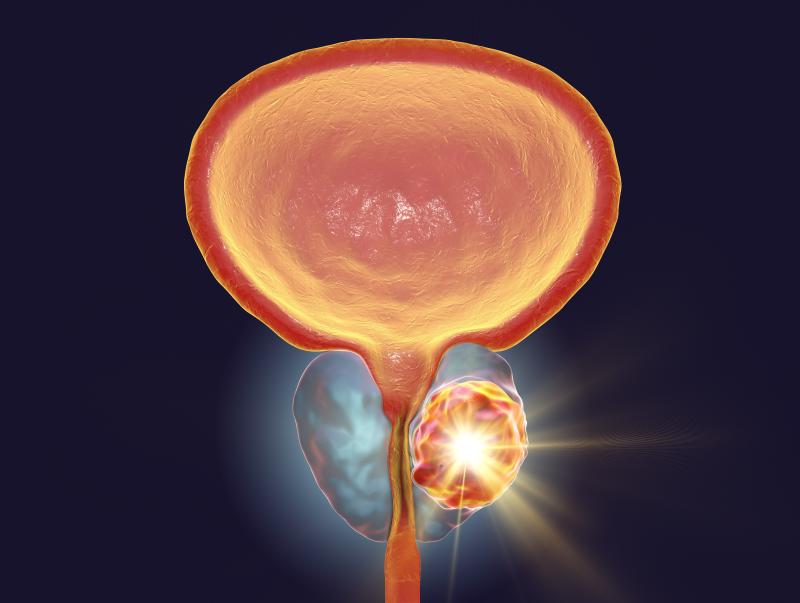
Whole-pelvis radiotherapy (WPRT) improves biochemical recurrence-free survival (bRFS), but not distant metastasis-free survival (DMFS) and prostate cancer-specific survival (PCSS), in patients with Gleason grade group 5 prostate cancer (PCa) treated with either external-beam radiotherapy (EBRT) or EBRT with a brachytherapy boost (EBRT+BT), a recent study has found.
The study included 1,170 eligible PCa patients, of whom 734 (median age, 68 years) received EBRT alone and 436 EBRT+BT (median age, 68 years). Study outcomes were bRFS, DMFS and PCSS, which were compared between groups after propensity score adjustments.
More than half (53 percent; n=619) of the patients received WPRT. Kaplan-Meier curves, adjusted for potential covariates, showed that in the EBRT group, the adjusted 5-year bRFS rates in patient with vs without WPRT were 66 percent and 58 percent, respectively. In the EBRT+BT patients, the corresponding rates were 88 percent and 78 percent.
In the propensity score-adjusted model, WPRT provided a significant benefit in the EBRT+BT patients (hazard ratio [HR], 0.5, 95 percent confidence interval [CI], 0.2–0.9; p=0.02), but not in those who received EBRT alone (p=0.4).
The opposite was true for DMFS, which did not show signs of benefit from WPRT in either the EBRT alone (HR, 1.1, 95 percent CI, 0.7–1.7; p=0.8) or EBRT+BT (HR, 0.6, 95 percent CI, 0.3–1.4; p=0.2) treatment groups.
PCSS, likewise, derived no significant benefit from WPRT (EBRT alone: HR, 0.7, 95 percent CI, 0.4–1.1; p=0.1; EBRT+BT: HR, 0.5, 95 percent CI, 0.2–1.2; p=0.1).